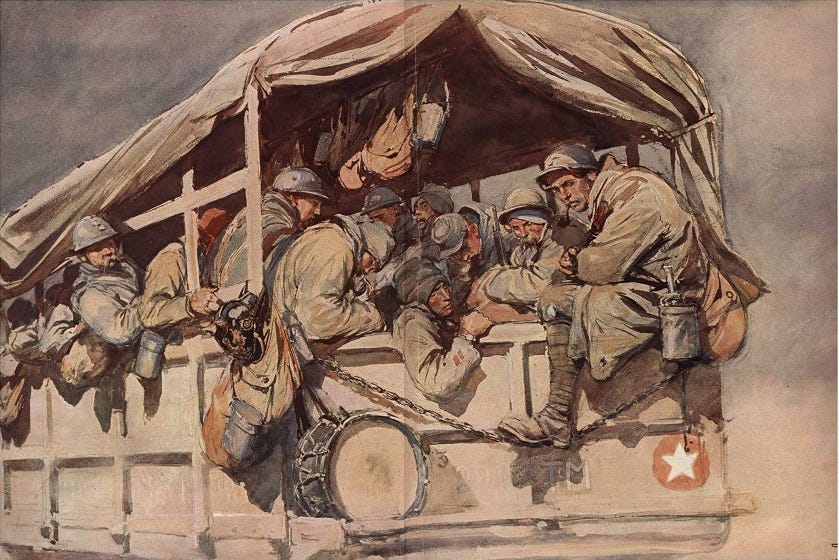In Thoughts on Our Ruling Class Monoculture, Glen Reynolds employs an agricultural analogy to explain the vulnerability of Western political elites to fads of various sorts. The great and the good, he argues, embrace “the latest thing” with such vigor and unanimity, because, like the potatoes planted in Ireland before the famous famine, they have too much in common with each other.
Reading this splendid article reminded me of the many times that this problem has afflicted the leadership of military organizations. In particular, it led me to think of the programs of prescriptive doctrine implemented within the French and American armies in the years following the end of the First World War.
In the view of the champions of this approach, the best way to manage the inherent complexity of modern armies began with the writing of detailed descriptions of the methods that its units and formations ought to use in specific sorts of situations. Promulgated in manuals, taught in school, and practiced in field exercises, these scripts provided commanders with the ability to predict how their subordinates, superiors, and peers would respond to any given problem.
Unfortunately, what was predictable to friend was also predictable to foe. To make matters worse, dependence upon scripts impeded the ability of leaders to compose effective responses to challenges that not been foreseen by the writers of manuals.
Here at the Tactical Notebook, we are doing our bit to promote an alternative to military monoculture, one that might be described as the martial analogue of organic gardening. The elements of this approach, which borrows much from the maneuver warfare tradition, include the playing of decision games, the exploration of the peculiarities of the armies and battles of the past, and the celebration of soldiers, such as George C. Marshall, who blazed a better trail.





